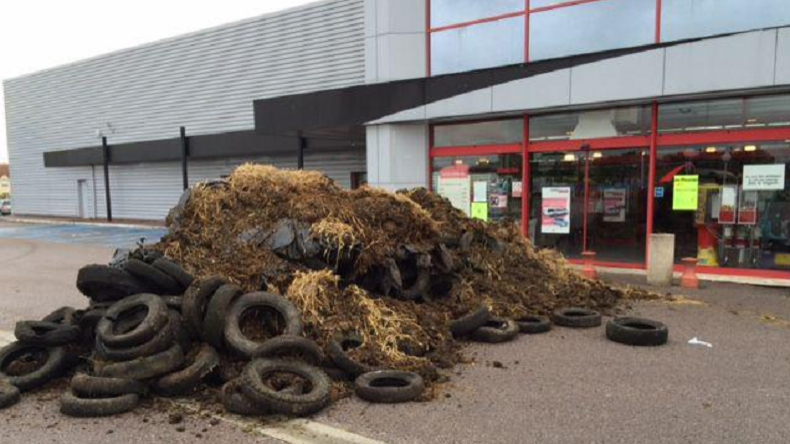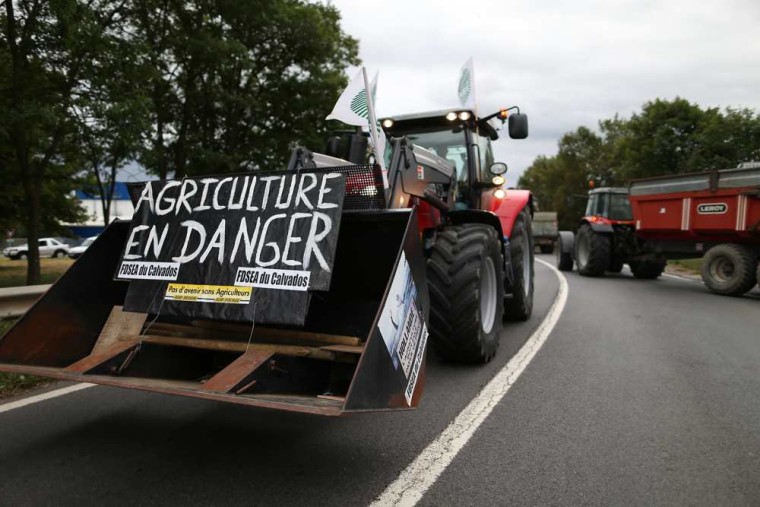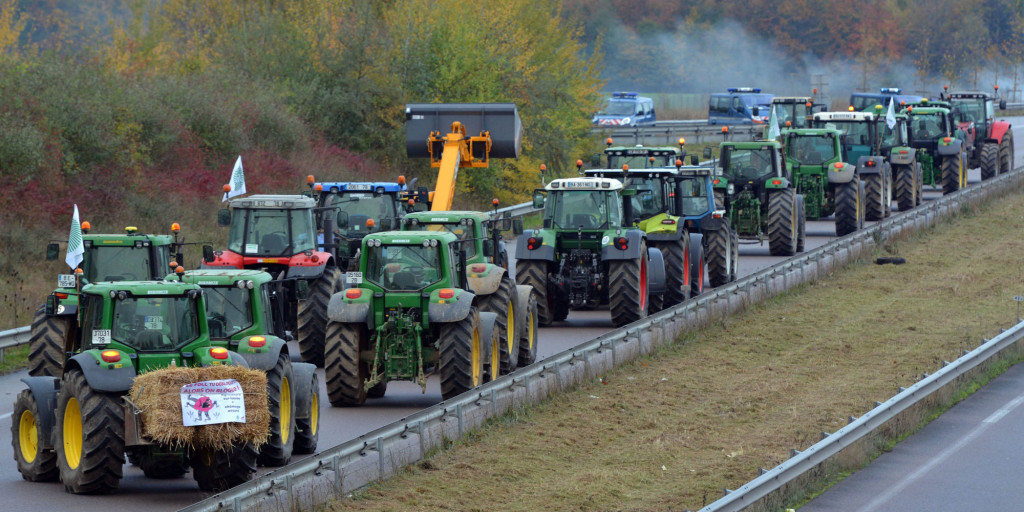Since Sunday farmers in France have been protesting the low prices of meat and dairy, which have left many among them bankrupt. Dairy and pork farmers have been blockading roads to towns and tourist attractions with tractors and protesting outside supermarkets and government buildings.
The farmers argue that French supermarkets are keeping the prices artificially low. To show their dissatisfaction, the protestors have dumped piles of garbage and manure in front supermarkets and at roadblocks to tourist sites such as Le Mont Saint Michel.

Photo courtesy of rt.com
On Wednesday the French government proposed a $655 million-dollar plan to aid the farmers during the agricultural crisis. Prime Minister Manuel Valls said, “The demonstrations of the past days reflect the anguish and distress that we have seen for some time. We want to respond to this anguish.” The plan has not been greeted with much enthusiasm as farmers are still blocking several roads to cities such as Lyon.

Photo courtesy of Charly Triballeau
Protests are extremely common in France, and can be seen as part of the cultural heritage. You can expect to plan your daily commute around train strikes from SNFC workers, plan your homework schedule around popular student rallies and organize your shopping trip around agricultural strikes.

Photo courtesy of Mustafa Yalcin
This is the most recent large-scale French agricultural in two years. In November 2013 cereal farmers focused their protest in Paris and blocked roads leading to the capital. Disillusioned with the rising taxes, the farmers caused a massive slow-down around the city’s highways.
The consumer desire for cheap grocery store picks along with the Russian ban on EU imports have worsened the situation. For now these agricultural protests serve as the cornerstone of the food politics debate.




